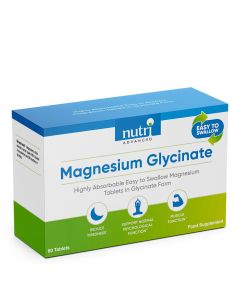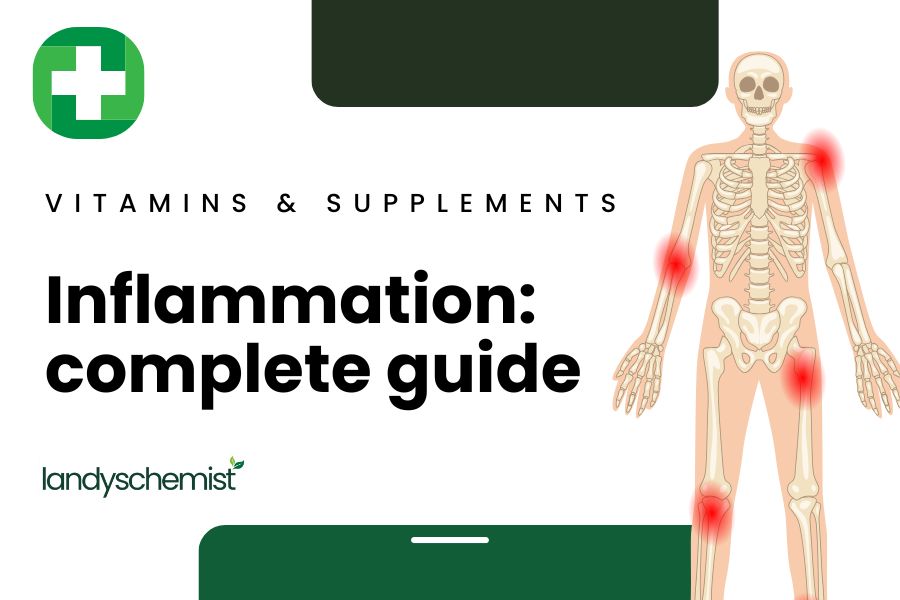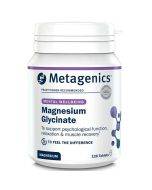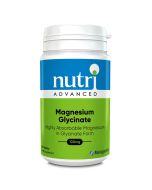
What Does Magnesium Glycinate Do? Sleep, Stress, Cramps & More
Magnesium glycinate is a highly absorbable form of magnesium, widely used for sleep, anxiety, muscle cramps and more. At Landys Chemist, our in-house experts, including Head of Nutrition Mitesh Desai, regularly recommend it for people struggling with poor sleep, high stress or muscle tension. So what does it actually do in your body, and how is it different from other types of magnesium supplements? You’re in the right place.
Benefits | How It Works | Who Its For | When To Take | Safety & Dosage | FAQs
What is magnesium glycinate and how is it different?
Magnesium glycinate is a chelated form, where magnesium is bound to glycine which is a calming amino acid that has been found to support sleep, stress relief, and nervous system function.
This form is well absorbed and gentle on digestion, unlike magnesium oxide, which is poorly absorbed and can cause loose stools. Magnesium citrate absorbs better than oxide but may still cause stomach discomfort.
"Because of its pairing with glycine, magnesium glycinate helps restore neurological balance — especially for stress and sleep," says Mitesh Desai, Head of Nutrition at Landys Chemist.
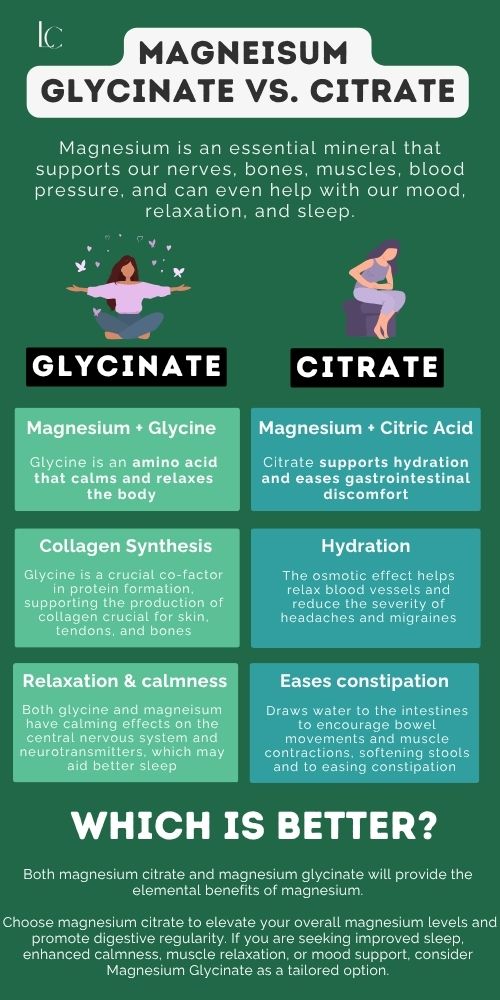
Key Benefits of Magnesium Glycinate
Magnesium glycinate supports a wide range of health functions thanks to its gentle, well-absorbed form. Here's how it works:
- Reduces Anxiety: Magnesium glycinate binds to glycine, an amino acid that calms the nervous system and supports GABA, a neurotransmitter that promotes relaxation. A 2021 study found magnesium supplements helped significantly lower anxiety scores in participants.
- Improves Sleep: Glycine can improve sleep quality and reduce time to fall asleep. Combined with magnesium's muscle-relaxing properties, it’s one of the best forms for sleep support.
- Supports Muscle Function: Magnesium plays a key role in muscle contraction and relaxation. Research shows low magnesium is associated with increased muscle cramps and spasms.
- Boosts Bone Health: Magnesium aids calcium absorption and helps build bone density. Studies show that adequate magnesium intake is associated with higher bone mineral content.
- Supports PMS & Hormone Balance: Magnesium glycinate may help with mood swings and PMS, especially when taken alongside vitamin B6 or zinc. Find out more: Benefits of magnesium and zinc
"We often suggest magnesium glycinate for women going through hormonal shifts, such as during menopause or PMS," says Mitesh Desai. "It’s well-tolerated and supports both mood and sleep."
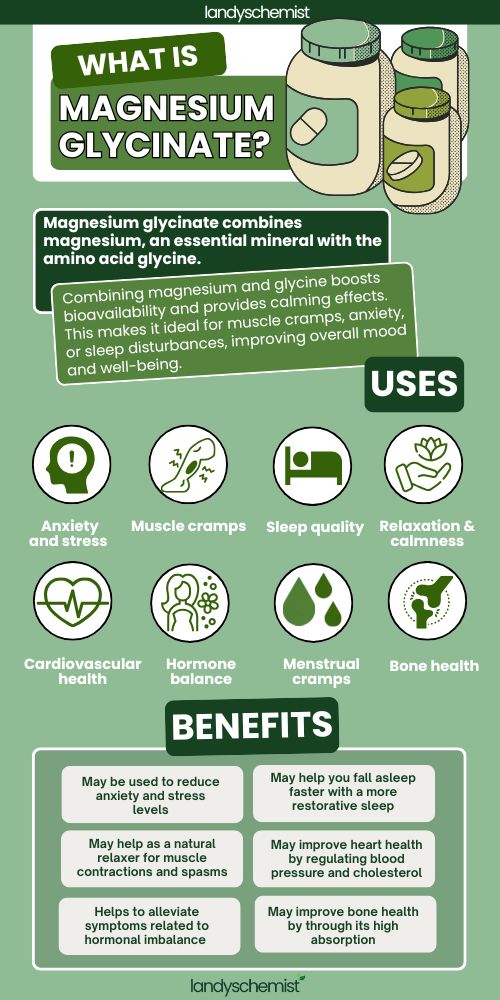
How Does Magnesium Glycinate Work?
Magnesium glycinate is a chelated form - magnesium bound to glycine. This bond allows it to:
- Pass through the small intestine efficiently (high bioavailability)
- Be gentle on the stomach (unlike magnesium oxide)
- Influence neurotransmitters like GABA for a calming effect
A 2022 trial confirmed that chelated forms like glycinate show superior absorption and fewer side effects compared to non-chelated forms.
"Glycine is a calming amino acid on its own," explains Mitesh Desai. "When paired with magnesium, the combination helps soothe the nervous system in a unique way."
Who Might Benefit Most?
You may benefit from magnesium glycinate if you:
- Struggle with stress, anxiety or trouble sleeping
- Experience regular muscle cramps or spasms
- Are going through hormonal changes like perimenopause, PCOS, or PMS
- Have a history of low magnesium (e.g. due to digestive issues, alcohol use, or certain medications)
When and How to Take Magnesium Glycinate
- Best time: Evening or 1–2 hours before bed for sleep or relaxation benefits
- With or without food? Preferably with a meal to aid absorption and reduce any mild stomach upset
- Forms: Capsules, tablets, powder, chewables are all well tolerated
"Most people notice effects within a week with improvements in sleep, fewer cramps, and calmer mood," says Mitesh.
Magnesium glycinate pairs well with:
- Vitamin B6 (for PMS)
- Zinc (immune and hormonal support)
- Ashwagandha or L-theanine (for stress)
Is Magnesium Glycinate Safe?
Magnesium glycinate is generally safe and well tolerated by most adults. The NHS states that in the UK, the NRV (Nutrient Reference Value) for magnesium is 375mg/day.
People with kidney disease or those on diuretics or antibiotics should speak with a pharmacist before starting supplementation.
Product checklist (what to look for):
- Labelled "magnesium bisglycinate or glycinate"
- Free from magnesium oxide fillers
"Some supplements on the market use blends that aren’t fully chelated. Always check the label carefully," advises Mitesh.
Recommended Products
Nutri Advanced Magnesium Glycinate
A high-strength, fully reacted form of magnesium bisglycinate designed for optimal absorption and gentle digestion. Each tablet delivers highly bioavailable magnesium, making it an excellent choice for daily use.
Great for nervous system support, restful sleep, and easing muscle tension.
Summary
Magnesium glycinate is the best magnesium supplement for people seeking calm, better sleep, and relief from muscle tension. It works differently than other forms by combining magnesium’s benefits with glycine’s calming effects – and it’s well-tolerated by most people.
Explore our full range of magnesium glycinate supplements and discover the right one for your needs.
FAQs About Magnesium Glycinate
What is magnesium glycinate best for?
agnesium glycinate is best for supporting sleep, reducing anxiety, easing muscle cramps, and managing PMS symptoms due to its calming and muscle-relaxing effects.
When should I take magnesium glycinate?
Magnesium glycinate is best taken in the evening, ideally 1–2 hours before bed, with food to support relaxation and improve sleep quality.
How long does magnesium glycinate take to work?
Magnesium glycinate typically starts working within 3 to 7 days, with many people noticing improvements in sleep, mood, or muscle tension in the first week.
Is 1000mg of magnesium glycinate safe?
No, taking 1000mg of magnesium glycinate daily is generally not safe or recommended. This dose may exceed the safe upper limit for elemental magnesium and could cause side effects like diarrhoea, low blood pressure, or irregular heartbeat. Always stick to recommended doses unless advised by a healthcare professional.
Is magnesium glycinate better than magnesium citrate?
Magnesium glycinate is better than magnesium citrate for sleep and anxiety, as it’s gentler on the stomach and has more calming effects.
How do I know if I need magnesium?
You may need magnesium if you experience poor sleep, muscle cramps, low energy, anxiety, or symptoms of deficiency like fatigue and irritability. Read more: Benefits of Magnesium & Signs of Magnesium Deficiency
Sources:
- Magnesium in neuroses and neuroticism - Magnesium in the Central Nervous System - NCBI Bookshelf
- Effect of magnesium and vitamin B6 supplementation on mental health and quality of life in stressed healthy adults: Post‐hoc analysis of a randomised controlled trial
- The Sleep-Promoting and Hypothermic Effects of Glycine are Mediated by NMDA Receptors in the Suprachiasmatic Nucleus
- https://www.cabidigitallibrary.org/doi/full/10.5555/20073239213
- Impact of magnesium on bone health in older adults: A systematic review and meta-analysis - ScienceDirect
- Evaluating the effect of magnesium and magnesium plus vitamin B6 supplement on the severity of premenstrual syndrome - PMC
- Magnesium Glycinate - an overview | ScienceDirect Topics
- Magnesium Oxide Side Effects, Dosage & Uses | Children's Pittsburgh
- Comparing oral iron bisglycinate chelate, lactoferrin, lactoferrin with iron and iron polymaltose complex in the treatment of children with iron deficiency anemia - ScienceDirect
- Vitamins and minerals - Others - NHS
Medically Reviewed & Authored By
This article was medically reviewed by Girish Desai, Chief Pharmacist at Landys Chemist since 1982 (GPhC Reg. No. 2019217), with expert nutritional input from Mitesh Desai, Head of Nutrition at Landys Chemist.
Written and compiled by Rhysa Phommachanh, Head of Digital at Landys Chemist and specialist in health and wellbeing content strategy.
Disclaimer: This content is grounded in current NHS guidance, clinical research, and expert pharmacy and nutrition knowledge to ensure accuracy and relevance for UK readers. For personalised advice, always consult your GP or a qualified health professional.

